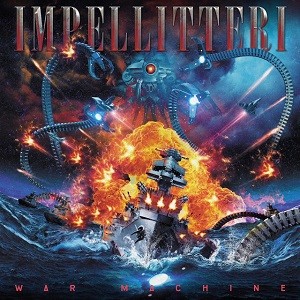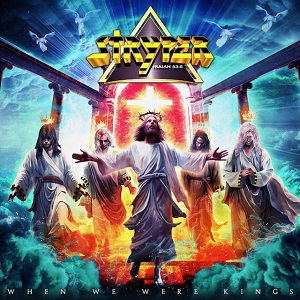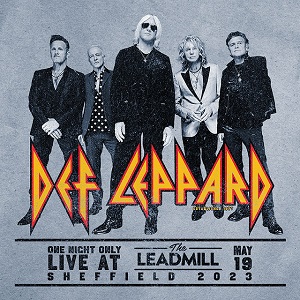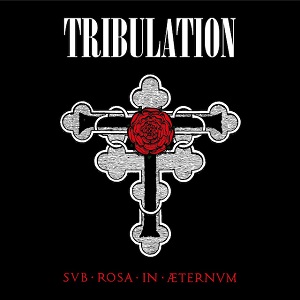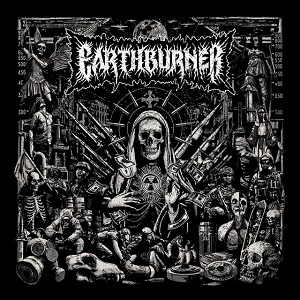OVERKILL Pauses To Reflect On The Grinding Wheel
March 15, 2017, 7 years ago
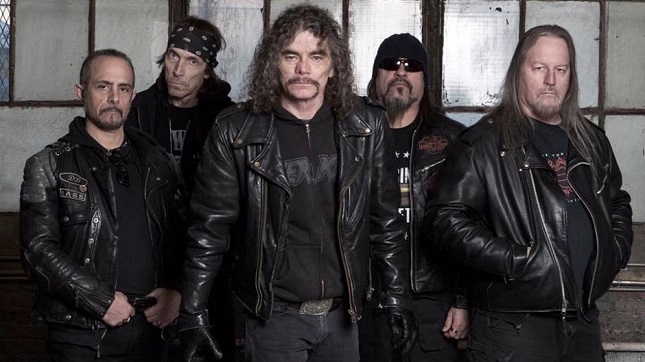
While every new genre produces crops of clones, there are always the bands at the top, the bands that started it all. Usually, these bands have things in common with other bands due to being in the same region or town, but there is usually something distinct about each band, even though they might share members.
In the case of Overkill, there was never a path to follow. They created their own path. The New York City-based thrash group was one of the first. I was five-years old when the band started in 1980, even before the great Metallica. Back then there was no such thing as thrash. Metallica deserves much of the credit for helping coin that phrase or description, but when thrash became a viable thing, Overkill was definitely at the forefront of the movement.
Enter 2017 and the wrecking crew is still at it, but like a fine wine (to use the cliché), they get better with age. The Grinding Wheel is the band’s 18th studio album, a mighty feat in any artists’ career, and it is an experimentation of sound. After nearly forty years in the biz, the band could certainly rest on its laurels, but that’s not the case. Sure, longtime fans will recognize their signature sound, but they’ll be blown away by the diversity and dynamics. Diversity and dynamics aside, a good riff is a good riff. These guys still bring it!
BraveWords: Tell us about the early NYC scene? Did you gig with bands like Anthrax?
Bobby Blitz: “We played more than one show with Anthrax. We toured Europe with them in 1986.When we started, there was an influx of thrash—the combination of New Wave of British Metal and punk—and then there was the hardcore scene, which was more of an extreme metal and punk vibe. We did shows with Cro-Mags and Biohazard. That was an influence on us very early. So, it was kind of a mixed scene. It was a cool thing. The metal bands were trying to be harder and the hardcore musicians were trying to infuse harder musicianship. This gave both sides some credibility. Overkill took from both sides. Overkill was not your typical band on the bill. There was a ton of stuff happening. There was Nuclear Assault. We played with them plenty of times here. Carnivore…they became Type O Negative. There is a great, thriving scene here. One of the things common to this area is a lot of these bands had a certain individually to them. There was a certain commonality to the Bay Area, too. There was a difference between a Bay Area sound and an East Coast sound, as opposed to a German sound. Overkill was quite different from Anthrax, Biohazard or Type O (somewhere in here he mentions Agnostic Frost).”
BraveWords: The first thing that stands out for you guys is, obviously, the name: Overkill. It’s an homage to the greatest hard rock/heavy metal band of all-time: Motörhead. In this sense, you guys have similarities to Metallica. Sure, you have your signature sound, but stylistically you can look at the influences of the two heads: Diamond Head and Motörhead. Talk a little about that and how you added the hardcore to it.
Blitz: “I think Metallica was all to themselves in regard to what their influences were and how they used them. In regard to their recognition, they did something very special. Even to this day, they are still regarded as a great band. They are the biggest band in the world! I think that we didn’t take exactly the same influences as Metallica…”
BraveWords: No, I’m just saying there is that Head influence: Diamond Head and Motörhead.
Blitz: I think so. “There is way less Diamond Head. We are, for sure, Motörhead fans. We were a cover band for years before, and were covering stuff from No Sleep ‘Til Hammersmith and Ace Of Spades and Bomber. This was kind of our background and then you mix that with the New York punk scene, that type of energy. Then you added stuff like the first two Maiden records and you had an Overkill approach.”
BraveWords: Along with bands like Prong, Metallica and Megadeth, you really brought groove to thrash metal. I feel it this influenced the ‘90s tremendously.
Blitz: “I think so. I think we understood groove before the ‘90s got there. We did songs like ‘Skullcrusher’ and followed it up with the album Horrorscope. This is where we started understanding groove and how we could use it in the approach. It could still be very bombastic and very speed oriented, but the groove was very necessary. So, I think we carry that with us today. Even on the Grinding Wheel, you hear it on songs like ‘Mean Green Killing Machine’ or ‘Come Heavy’.”
BraveWords: Mean Green starts off just kicking you in the ass. That’s a really tough song, bro.
Blitz: “Thanks man.”
BraveWords: One thing that was done a lot in the ‘80s was featuring your bass on a thrash track. This really fell off in the ‘90s with extreme bands like black metal groups. D.D.’s (Verni) bass is very signature. Why is it important that you make a production that includes every instrument, including your voice, which stands out? It’s perfect.
Blitz: “You mentioned Motörhead earlier. The principals of Motörhead were learned in the ‘80s and ‘90s. That is everything is louder than everything else. That’s the principle of a Motörhead mix. We look at that seriously. It was a more difficult and delicate balance because we are in a three-piece band. The idea behind that is to make more things prominent. When all things are prominent it becomes a heavier production. It’s just a necessary Overkill characteristic.”
BraveWords: Who produced the record?
Blitz: “We produced this. We produced most of our records. Between 18 records, we have production credits on 15 of them. We did all the production on this, all the way through. We handed it over to Andy Sneap to mix. The mix is the most important but you have to start with great sounds—great drum sounds, guitars, etc. You can’t expect them to shine a turd. You can’t do that. We did the production all the way through. We went into it will guidelines. We wanted more organic drums. It comes from the gut, not from the nose. We wanted a heavier guitar. This is just a thicker-sounding record than most thrash or modern-day speed metal records.”
BraveWords: I think that’s why you continue to expand yourself and get better sounding. The production in the ‘80s sucked. The guitars were really thin and the volume was really low. You’re record just crushes!
Blitz: “That’s a compliment in opposed to a different era I think for a band that is as old as we are, we are realists. You have to be able to embrace technology and you have to be able to reinvent yourself in regards to that tech. What happened on the last record is ancient history. It doesn’t really matter anymore. What matters is the new release. Present it with a new face. That’s always the way we approach production.”
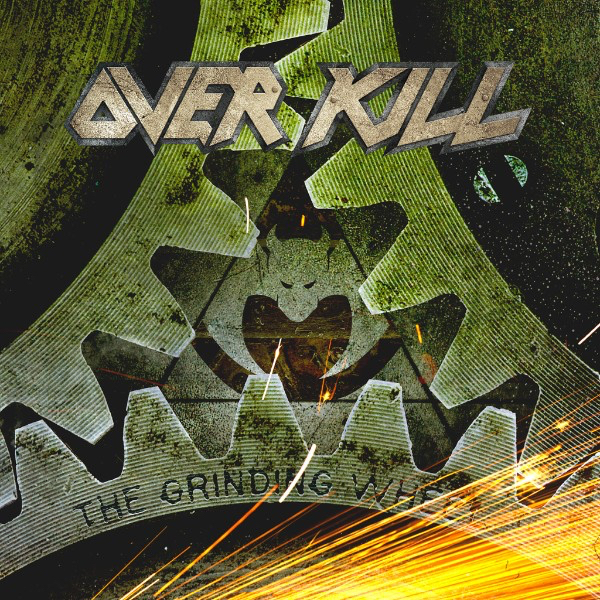
BraveWords: There are definitely things you haven’t done before on this album. A prime example is the title track. The title track has a lot of different elements. It’s very bombastic. Talk about that track if you will.
Blitz: “I started getting that track in pieces from the guys when it was developing. I had heard those pieces at rehearsals and when we were demoing them. There was traditional metal in it. We do a really thrashy, speedy part in the center. The chorus rang of this epic-type choir feel. The outro is the ultimate choir: it’s the Mormon Tabernacle Choir going after the end with keyboards and ringing bells. As the vocals came together, I saw they joined each part, which is unique, because the song is usually there before the vocals are added. The vocals are through this whole thing together. It holds all these different elements in it. It’s seven-plus minutes of thrash, rock ‘n’ roll and heavy metal. There is a groove in it. Then there is this epic ending with choirs and keyboards that goes on for a minute and a half. We’ve messed around with all of those elements in the past, but I don’t think we get as good of results as we have on this song because the song, itself, really stands up. It almost sounds like a movie soundtrack.”










